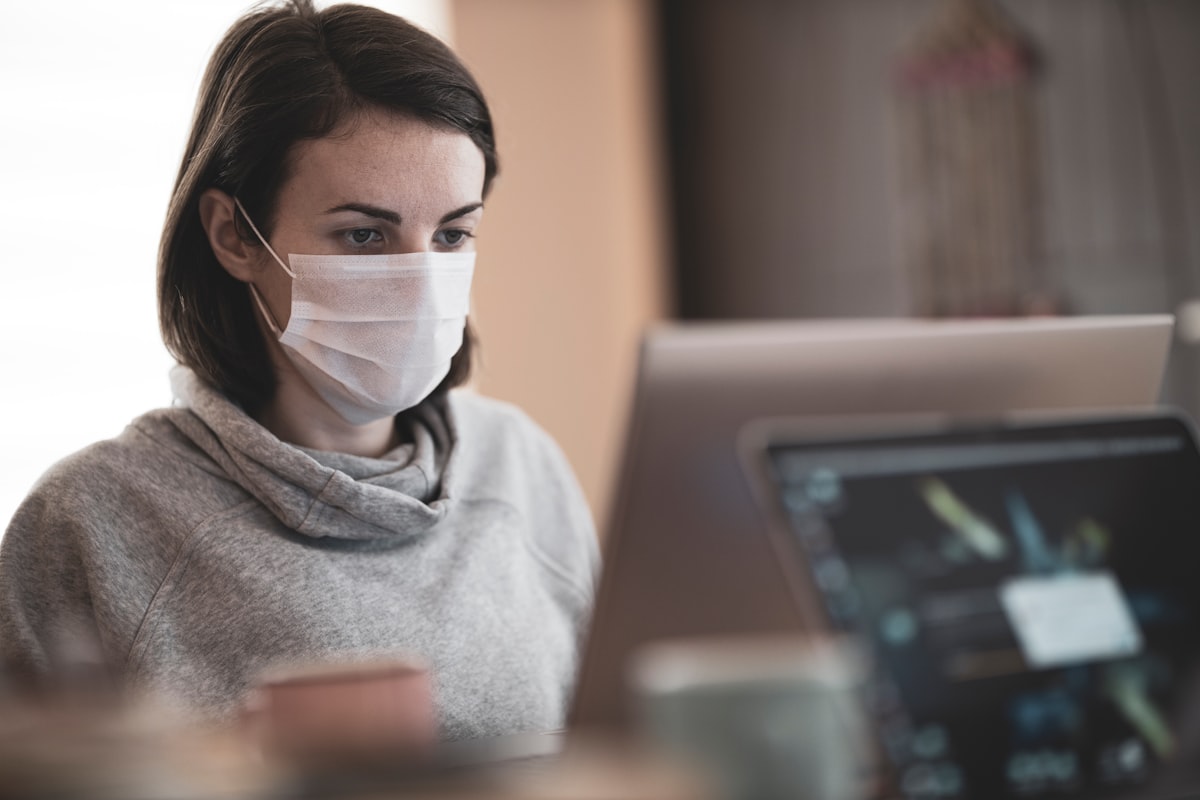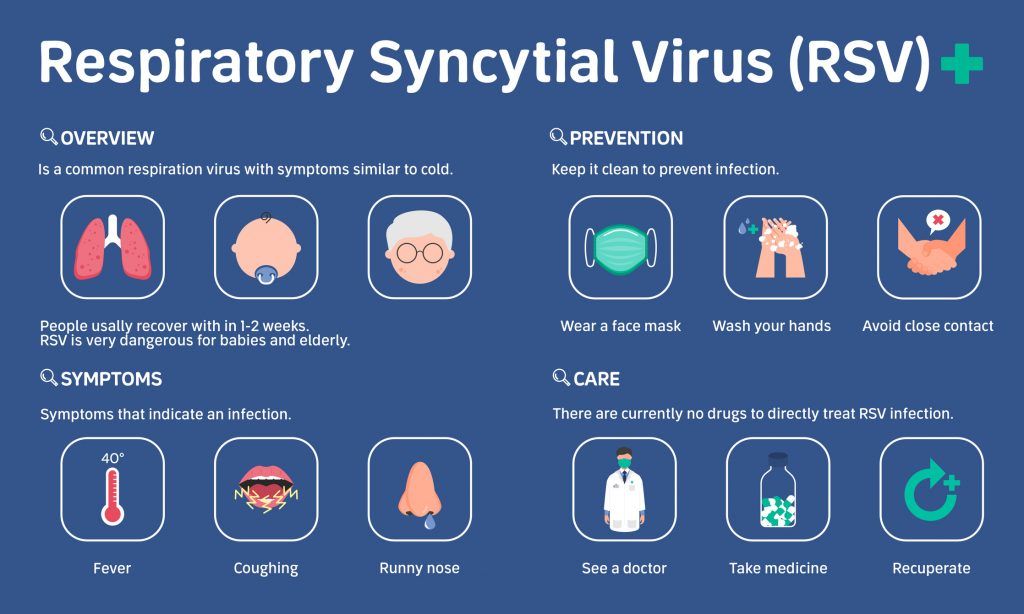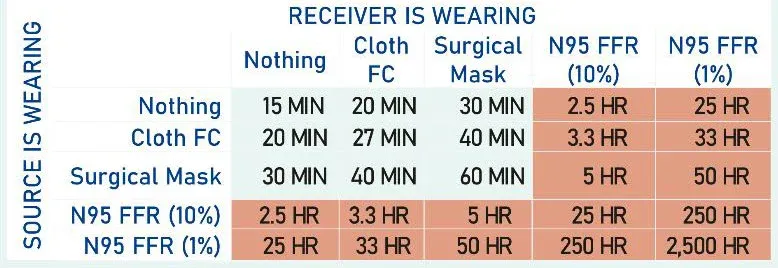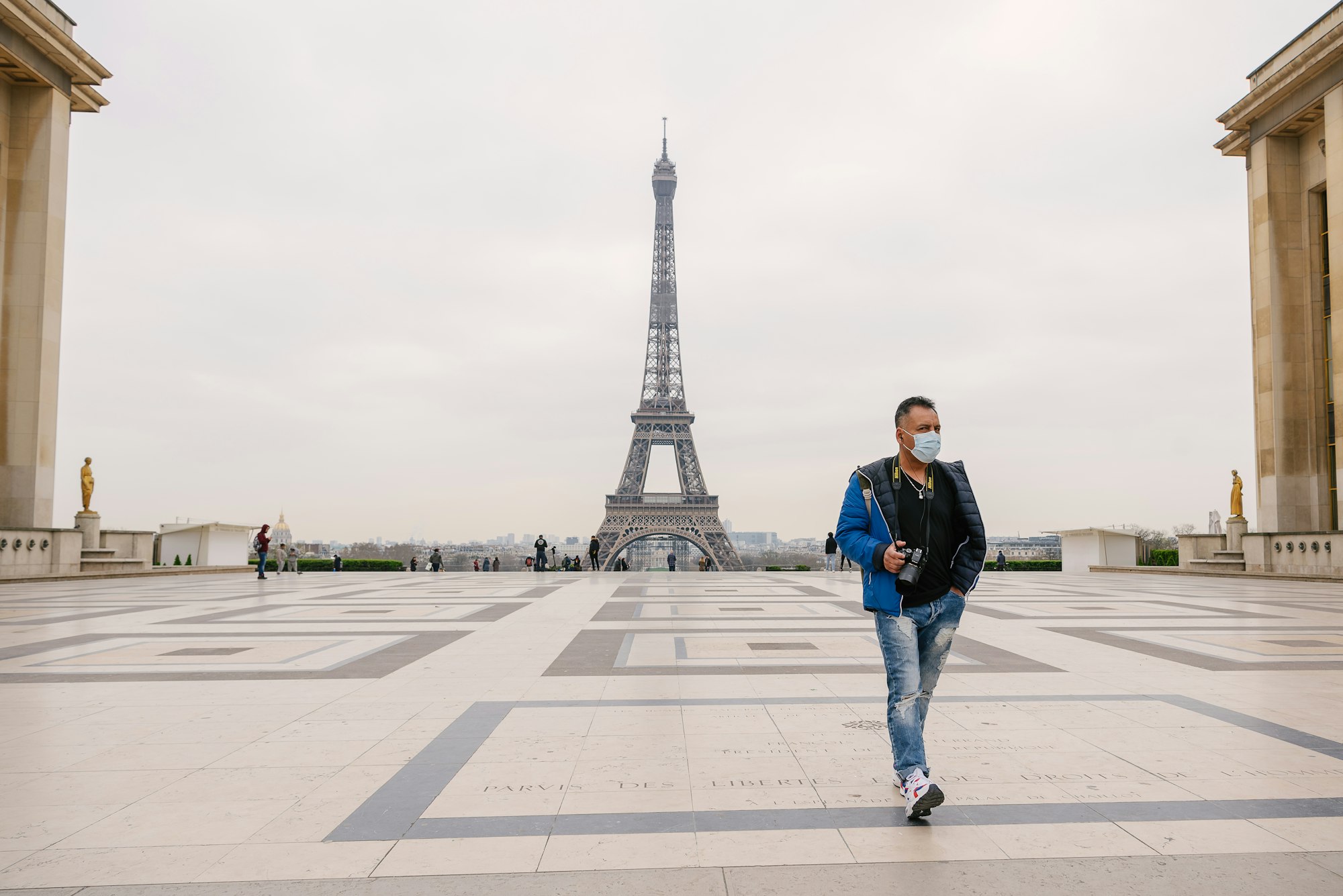How well do the face masks protect against virus?
Can face masks stop the virus from spreading more quickly? What about COVID-19, the coronavirus disease of 2019? Understand the role of the mask and how the mask can help us prevent the spread of any virus, not just COVID.

Can face masks stop the virus from spreading more quickly? What about COVID-19, the coronavirus disease of 2019? I'm pleased to say yes. Face masks can help prevent the spread of the virus, particularly COVID-19, in addition to other protective measures like getting vaccinated, often washing your hands, and physical separation.
The face mask provides a barrier that helps to prevent the spread of infectious particles and to protect the wearer from exposure to airborne particles. By wearing a face mask, individuals can help to reduce the risk of transmission of respiratory infections and protect themselves and others from harm.
What is a face mask?
The face mask is designed to filter out particles, including viruses, from the air that you breathe. The most effective face masks for virus protection are typically certified by regulatory agencies such as the National Institute for Occupational Safety and Health (NIOSH) or the European Union's CE marking. These masks are designed to meet specific filtration and performance standards and are tested to ensure they provide high protection against airborne particles, including viruses.
Mask Types
- N95 respirator: These masks are designed to filter out 95% of airborne particles, including viruses. They are commonly used in healthcare settings and are designed to fit tightly to the face to prevent air from leaking around the edges.
- KN95: These are similar to N95 respirator masks and are designed to filter out at least 95% of airborne particles. They are commonly used in non-healthcare settings and are designed to fit tightly to the face.
- Surgical: These masks are designed to protect others from the wearer's respiratory emissions, but they can also provide some protection to the wearer. They are typically made of multiple layers of material and can filter out large droplets and some smaller particles.
It's important to note that no mask can provide 100% protection against viruses, and it's important to use masks in combination with other measures such as hand hygiene, social distancing, and avoiding crowded indoor spaces to reduce the risk of infection. Additionally, it's essential to follow the specific instructions for using and disposing of masks to ensure they provide the intended level of protection.
Photo by Lukas Souza / Unsplash

Mask Use - Why Controversial?
When someone is ill (such as with respiratory illness), masks are frequently used in the Asian region to prevent the spread of any viruses to other people. However, it is the bare minimum that can be done to avoid the spread of infection and basic common sense. Asians frequently wear masks (pre-COVID) in public during the cold and flu season as a preventative measure to avoid contracting any illnesses. So as you can see, using a mask is nothing new.
Photo by Lisanto 李奕良 / Unsplash
But, in the western world during COVID-19, the use of masks has become a controversial issue during the COVID-19 pandemic for several reasons.
- Conflicting information: At the beginning of the pandemic, there was conflicting information about the effectiveness of masks in preventing the spread of COVID-19. Some health authorities initially advised against wearing masks, while others recommended their use. This caused confusion and mistrust among the public.
- Political polarization: The use of masks has become politically charged, with some individuals and groups opposing mask mandates or other public health measures as an infringement on their freedom. This has created a divisive atmosphere and further fueled the controversy around masks.
- Misinformation: The spread of misinformation and conspiracy theories about masks has contributed to the controversy. Some people believe that masks are ineffective or even harmful, despite overwhelming scientific evidence to the contrary.
- Comfort and convenience: Wearing a mask can be uncomfortable or inconvenient for some people, particularly those with breathing difficulties or sensory issues. This can lead to resistance or reluctance to use masks, even when recommended or required.
- Enforcement challenges: Enforcing mask mandates or other public health measures can be challenging, particularly in areas with resistance or non-compliance. This can lead to confusion and frustration among the public and law enforcement officials.
So many people still wearing masks.
— Marjorie Taylor Greene 🇺🇸 (@mtgreenee) November 29, 2022
I just want to ask you.
If a pair of underwear, really thick ones, high quality cotton, can’t protect you from a fart, then how will a mask protect you from covid??
The farts & COVID question has been asked and answered multiple times and ways since March 2020. The long and the short of it is COVID droplets are significantly larger than gaseous emissions so more likely to be stopped by a mask.

How to get the most from your mask?
Wearing a mask can effectively reduce the spread of respiratory infections, such as COVID-19. Here are some tips for getting the most out of your mask:
- Choose the correct type of mask: The most effective masks for reducing the spread of respiratory infections are N95 respirators and surgical masks. Cloth masks can also be effective, but they should be made of multiple layers of tightly woven fabric and fit snugly over the nose and mouth.
- Wear the mask correctly: The mask should cover your nose and mouth completely and fit snugly against your face without gaps. Be sure to adjust the ear loops or ties so that the mask fits comfortably but securely.
- Wash your hands before and after touching the mask: Before putting on or taking off the mask, wash your hands thoroughly with soap and water or use hand sanitizer.
- Avoid touching the mask while wearing it: Once you have put on the mask, try to avoid touching or adjusting it, as this can increase the risk of contamination.
- Replace the mask regularly: Disposable masks should be replaced after each use, while reusable masks should be washed afterward. Follow the manufacturer's instructions for washing and caring for your mask.
- Store the mask properly: When not in use, store your mask in a clean, dry place. Avoid placing it in your pocket or on surfaces that may be contaminated.
- Practice other preventative measures: Wearing a mask is just one part of a comprehensive strategy for reducing the spread of respiratory infections. Be sure also to practice good hand hygiene, physical distancing, and other public health guidelines.
These tips can help maximize your mask's effectiveness and reduce the spread of respiratory infections.

Conclusion
Wearing a mask can help prevent the spread of infectious diseases, particularly respiratory illnesses like COVID-19 and other viruses. Masks can help to contain respiratory droplets released when a person talks, coughs, or sneezes, which can help reduce the spread of the virus from person to person.
Several studies have shown that masks can effectively reduce the spread of COVID-19, particularly when combined with other preventive measures like social distancing and hand hygiene. Additionally, masks are generally safe and do not have any significant adverse health effects when used correctly.
Nevertheless, it's important to note that masks are not a foolproof solution and should be used with other preventive measures to help reduce the spread of COVID-19. It's also essential to choose the right type of mask and to wear it correctly, covering both the nose and mouth.
While wearing a mask may be uncomfortable or inconvenient for some people, it is a simple and effective way to help protect oneself and others from spreading infectious diseases.
So, the mask is not just for COVID-19. It is for you when
- You are sick, and as a good citizen, you would like to stop the spread of viruses to others.
- You want to be careful in a crowded place, knowing people who are sick will not mask and will freely share their viruses and germs.
Post COVID-19 and with so many variants, flu, RSV, and more, the best is to take precautions and the best care.
Photo by The Paris Photographer / Unsplash





